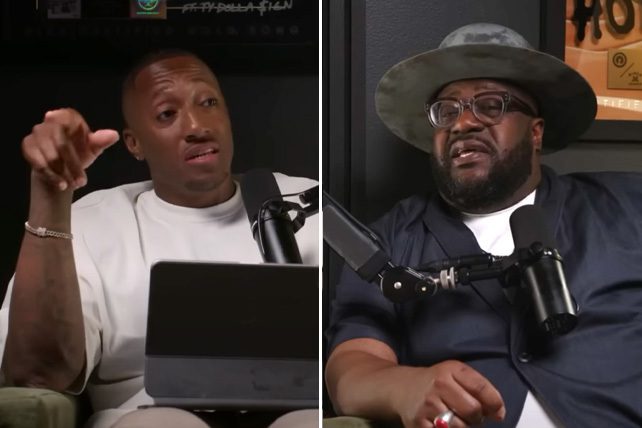On the newest episode of “Deep End with Lecrae,” the Christian hip-hop artist talked to author and Dr. Eric Mason about “misconceptions circulating in today’s Black Tik-Tok theology.” Mason, who leads Epiphany Fellowship Church in Philadelphia, founded Thriving, an organization that develops urban ministry leaders. Lecrae referred to Mason as an advocate for the church and one of the most culturally relevant voices on Black theology.
Mason said he came to faith while attending a Black college, when it wasn’t a good time to be a Christian. But being forced to defend his beliefs motivated his studies and his work in urban apologetics.
RELATED: Eric Mason: The Obstacles to Apologetics in Black, Urban Communities
Mason has a Master of Theology degree from Dallas Theological Seminary and a doctoral degree from Gordon-Conwell Theological Seminary. His latest book, “Rebranding the Church: Restoring the Image of God’s People in the World” releases on Sept. 30. Mason’s previous titles include “Woke Church: An Urgent Call for Christians in America to Confront Racism and Injustice” and “Urban Apologetics: Restoring Black Dignity with the Gospel.”
Pastor Eric Mason: Christianity Was Never ‘Forced’ Onto Black People
Black influencers who talk about religion often use dated information or don’t really understand Black church history, according to Mason. “It irritates me…that we have such a bad reputation as the church that it’s easy to slander us and nobody will defend us,” he said. “That’s why I’ve been on this whole ‘Rebranding the Church’ thing, because…we don’t just need a facelift. We need an authenticity overhaul.”
Using the example of the recent movie “Sinners,” Mason said Black Christianity usually gets presented with “a negative tinge.” Christians in Africa, he said, have asked him why Americans are “trying to go backward into African spirituality.” Through the genetic-fallacy argument, Mason said, people assume we have to get rid of stuff in the Bible that humans misused but that God redeemed.
Black people often have a narrative that “white people took away our culture from us and gave us their culture—which, part of that’s true, cultural imperialism—but then they add Christianity to it in all of its forms,” Mason said. Pointing to Albert Raboteau’s book “Slave Religion,” he added, “Christianity was never forced on [Black people]. [Slaveholders] were actually scared for us to get saved.”
When the Quakers started sharing the gospel with slaves, for example, the Quakers were persecuted. Black people “wouldn’t be enslavable because the gospel would so liberate them,” Mason said of the slaveholders’ mentality. “[Slaves] would see the hypocrisy.”
Mason said he has “Negro stupidity fatigue” from hearing Black people call Christianity “the white man’s religion.” The Jesus we worship wasn’t white, but he wasn’t necessarily Black either, he noted. “The devil just hates the true gospel,” Mason said.
RELATED: Thousands of People ‘Playing Church’—Francis Chan Tells Lecrae Why He Left His Megachurch Behind
But the pastor told Lecrae he’s encouraged by the number of young people who are becoming more knowledgeable about religious history—and the fact that people of color and women played key roles. For example, at the Council of Nicaea in 325 C.E., North African Christians had a strong presence. “If you look at most of the councils, you had to find the white people there,” said Mason.

